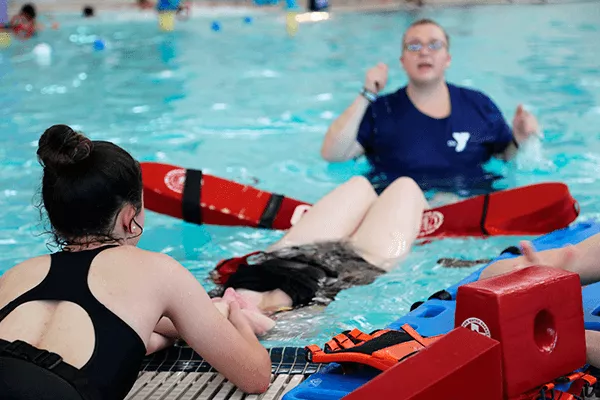Introduction
Becoming a lifeguard is more than a summer job it’s a responsibility to protect lives and promote water safety. In 2025, lifeguard class offerings have evolved with new online components, updated safety protocols, and emerging rescue technologies. Whether you’re 16 and looking for your first certification or an experienced swimmer refreshing your skills, this ultimate guide covers everything from course prerequisites to job prospects. Dive in to learn how lifeguard training prepares you physically and mentally, why lifeguard certification matters, and how to choose the best program for your needs.
Why Lifeguard Classes Are Essential in 2025
With the increasing demand for qualified safety personnel at pools, water parks, beaches, and aquatic facilities, lifeguard certification has become more crucial than ever. Lifeguard classes in 2025 are designed to equip candidates with advanced life-saving techniques, CPR/AED proficiency, and critical rescue skills to respond effectively in emergencies.
Whether you’re aiming for a seasonal job, a full-time position, or building a stepping stone into a broader public safety career, enrolling in a lifeguard class is your first and most vital move.
Who Should Take Lifeguard Classes in 2025?
Lifeguard classes are open to a wide range of participants, including:
- Teens (15+) looking for summer jobs
- College students interested in flexible part-time work
- Fitness enthusiasts wanting to use their swimming skills professionally
- Career changers seeking entry into the health and safety sector
If you’re passionate about public safety, water sports, and helping others, this is the career path worth exploring.
Eligibility Requirements for Lifeguard Certification
To enroll in a lifeguard training program, candidates must meet specific prerequisites:
- Minimum Age: 15 years or older
- Strong Swimming Skills:
-
-
Swim 300 yards continuously
-
Tread water for 2 minutes without using arms
-
Retrieve a 10-pound brick from 7–10 feet deep and return it within 1 minute and 40 seconds
-
-
Physical Stamina and Mental Alertness
These requirements ensure participants are fit to perform real-world rescues under high-pressure situations.
Top Lifeguard Certification Providers in 2025
There are several reputable organizations offering lifeguard certification programs in 2025:
1. American Lifeguard USA
- The most recognized certifying body nationwide
- Offers blended learning (online + in-person) options
- Covers shallow water, waterfront, and waterpark modules
2. Lifeguard Training
- Community-centered training
- Emphasizes teamwork, communication, and rescue readiness
- Popular among water parks and private resorts
- Strong focus on realistic scenarios and in-water vigilance
- Internationally recognized
- Offers cutting-edge, scenario-based training models
What’s Included in a Lifeguard Class Curriculum
Modern lifeguard courses in 2025 are more advanced than ever, combining interactive learning with rigorous physical practice. Typical topics include:
- Rescue Techniques for Swimmers in Distress
- Cardiopulmonary Resuscitation (CPR) for Adults, Children, and Infants
- Automated External Defibrillator (AED) Training
- First Aid Basics and Emergency Care
- Spinal Injury Management
- Surveillance and Victim Recognition
- Team Response Scenarios
- Legal Responsibilities and Ethics
Different Types of Lifeguard Classes Available
Depending on your goals and location, you can choose from a variety of lifeguard training formats:
1. In-Person Lifeguard Classes
- Ideal for first-timers
- Provides hands-on instruction
- Conducted in real pool environments
2. Blended Learning
- Part online, part in-person
- Flexible schedule
- Includes eLearning modules followed by physical skills assessments
3. Waterfront and Waterpark Lifeguarding
- Specialized training for natural bodies of water or amusement park settings
- Includes unique hazards like waves, tides, and slides
4. Recertification Courses
- For lifeguards with expiring credentials (usually valid for 2 years)
- Focused on updating skills and passing re-evaluation
How Long Do Lifeguard Classes Take?
The duration of lifeguard training varies by provider, but most courses range from:
- 20 to 30 hours total
- Conducted over 3–5 days, including weekends
- Some providers offer accelerated programs for experienced swimmers
How to Register for a Lifeguard Class Near You
To find lifeguard classes near you in 2025, use the following steps:
- Visit official websites like American Lifeguard USA.
- Use ZIP code search tools to locate nearby classes
- Check schedules, costs, and pre-course swim test requirements
- Complete online registration or contact the host facility directly
- Prepare for the pre-course swim test
What to Bring to a Lifeguard Class
- Swimsuit and towel
- CPR pocket mask (if not provided)
- Notebook and pen for notes
- Water bottle and snacks
- Government-issued ID
Be prepared for active participation every day. Physical activity is a major part of the training process.
What Happens After You Get Certified
After earning your lifeguard certification, you’ll be eligible to:
- Apply for lifeguard jobs at pools, beaches, resorts, and gyms
- Qualify for higher-paying positions with additional certifications (like Waterfront or Instructor)
- Maintain your skills with regular recertification
- Advance into aquatics management, safety training, or emergency response
Many employers also provide opportunities for on-the-job training and career advancement.
Job Opportunities for Lifeguards in 2025
Lifeguards are in demand across a range of industries, including:
- City and County Parks & Recreation Departments
- Beach Patrol Units
- Summer Camps
- Luxury Hotels and Cruise Lines
- Swim Schools and Aquatic Therapy Centers
With the right certifications and experience, you can even explore international lifeguard jobs or become a lifeguard instructor.
Conclusion
A lifeguard class in 2025 is more than a learning requirement it’s a comprehensive program blending cutting-edge training methods with life-saving skills. From lifeguard training basics like swim tests and CPR to advanced VR scenarios and beach rescue techniques, today’s courses prepare you for any aquatic emergency. Certification opens doors to jobs at pools, beaches, and waterparks, plus paths into leadership roles. By meeting prerequisites, choosing the right program, and committing to physical and mental preparation, you’ll graduate ready to protect lives and promote water safety. Dive into your lifeguard journey today your community depends on you.
Your Lifeguard Journey Starts Now
Lifeguarding is more than just watching swimmers it’s a responsibility that can save lives. With the right lifeguard class in 2025, you’ll gain essential life-saving skills, professional credentials, and a rewarding job opportunity.










